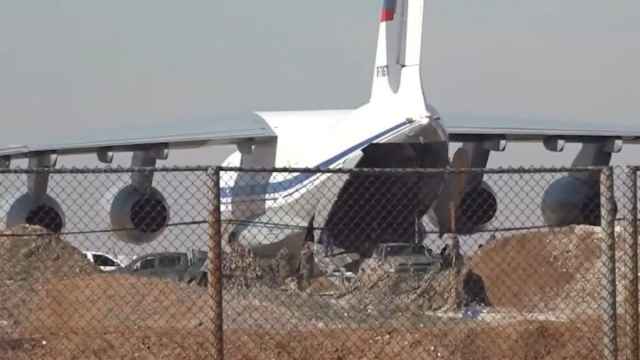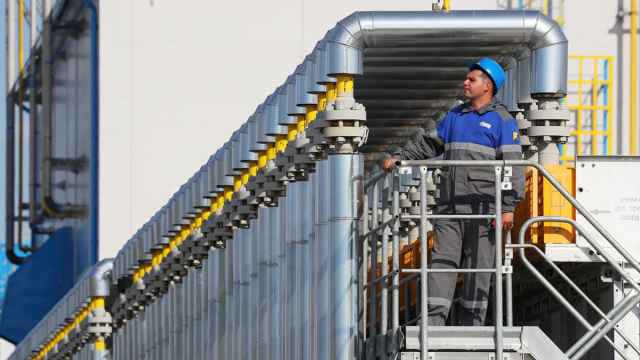
Asida Agrba
Associate
CMS, Russia
Russian migration authorities require that companies apply to employment centers annually and in advance for the rights to employ foreigners. According to the current regulations, companies reserve quotas for foreign employees by filing applications for their work permit quota for the next year by the May 1 of the current year.
The Federal Migration Service is continuously working to develop and improve the efficiency of its migration rules. Indeed, the importance and relevance of migration policy and its development and adaptation to changing living conditions is confirmed by the fact that First Deputy Prime Minister Igor Shuvalov heads the commission to develop migration policy. The latest amendments to migration legislation show that the state is interested and focused on changing migration policy.
The current mechanism for regulating immigration into Russia testifies to the liberal nature of Russia's immigration policy. In addition, creating an efficient mechanism for regulating migration in the interest of all those affected by migration (the state, individuals and society) is an important task.
Labor migration plays an important role in forming and developing migration policy. Specifically, particular attention is paid to the quota system for jobs. The Federal Migration Service insists on annulling the current system, as it hinders the regulation of the labor market, while the Ministry of Health and Social Development insists on maintaining the current bureaucratic procedure. The quota system was originally intended to regulate the flow of foreign workers to the regions, resulting from the demand of each region for a specific number of foreign workers. However, almost immediately after it was approved, the quota system started to experience deficiencies in its functioning. Specifically, an employer today is not responsible for applications to hire foreign workers. An employer may request a quota of a certain number of foreigners, but is not obliged to hire this number of workers.
At the same time, there could be other employers that have not applied for a quota of workers, but their situation has changed because of rapid development, thereby requiring the hiring of foreign workers. In this situation, the quota system does not permit an employer to hire additional workers because of the bureaucratic difficulties in correcting the quota system.
In order to remedy this situation, the Ministry of Health and Development for the last couple of years has been accepting orders to approve a nonquota list of positions.
However, this list provides mainly for only top manager positions and excludes midlevel specialists who, for the most part, are in demand when hiring foreign specialists. The opinion today is that the quota system only regulates statistical data on the applications submitted and does not assist in regulating the labor market of foreign workers.
Consequently, one may come to the conclusion that the quota system in its current state is inefficient and only leads to bureaucratic complications in hiring foreign specialists.
In order to improve legislative regulation of migration, contradictions must be eliminated between legal norms, deficiencies in legal regulations corrected and a glut of grandfather clauses, laws and regulations at different levels amended.
For the moment, it is necessary to develop and adopt an independent federal law to establish the foundation for state regulation of migration, improve quota organization, determine the direction and type of migration as well as the procedure on exiting and entering the country and on registering individuals as per their place of residence while living in the Russian Federation.
Actual demand for labor imports appears to be 30 percent higher than the established quota. To solve this problem a careful elaboration of methods to calculate labor demand at the federal and regional levels is necessary. In the very near future, the common labor exchange database will be organized. It will facilitate immigration control procedures, provide for the effective selection of labor migrants, and reduce illegal labor migration.
A Message from The Moscow Times:
Dear readers,
We are facing unprecedented challenges. Russia's Prosecutor General's Office has designated The Moscow Times as an "undesirable" organization, criminalizing our work and putting our staff at risk of prosecution. This follows our earlier unjust labeling as a "foreign agent."
These actions are direct attempts to silence independent journalism in Russia. The authorities claim our work "discredits the decisions of the Russian leadership." We see things differently: we strive to provide accurate, unbiased reporting on Russia.
We, the journalists of The Moscow Times, refuse to be silenced. But to continue our work, we need your help.
Your support, no matter how small, makes a world of difference. If you can, please support us monthly starting from just $2. It's quick to set up, and every contribution makes a significant impact.
By supporting The Moscow Times, you're defending open, independent journalism in the face of repression. Thank you for standing with us.
Remind me later.





